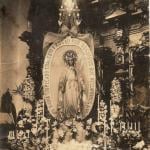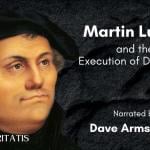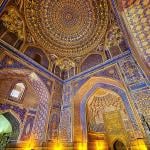Chris Beetham was kind enough to offer his thoughts on publishing with Brill’s Biblical Interpretation Series (BInS) on the use of Scripture in Colossians.
Echoes of Scripture in the Letter of Paul to the Colossians (2008).

1. Thanks for doing this Chris. I see you studied at Wheaton. How was your experience there?
My experience at Wheaton College Graduate School was fantastic. I matriculated in the fall of 2002, which was actually the first year that the new PhD program was set to begin. Therefore, the five of us were the first students to go through the program. You could say that we were the guinea pigs. There were definitely rough edges that we endured that future students will not because they have been smoothed out. With the provost, Stan Jones, and some others, Drs. Greg Beale and Doug Moo created a program that was designed intentionally to be different from the standard PhD in biblical studies. They created a PhD in biblical theology, in which students would be forced to work in an area outside of their specialty at a professional level of ability and to produce work that integrated the two disciplines and broke new ground. So, for example, I applied to Wheaton to work under Beale as my supervisor, and so New Testament was my concentration. Together, however, we chose a dissertation topic that forced me to engage at a rigorous level with the discipline of Old Testament studies. One might reply that to focus on two disciplines is to know neither. I tend to disagree. A PhD is only the beginning—not the end—of learning and research and writing at a professional level. And moreover, the synthesis of the two disciplines proved to be fruitful. I have received a lot of positive feedback informally already on the work. We will have to wait the professional reviews to see what others say.
2. How in the world did you end up teaching in Ethiopia?
About halfway through the program at Wheaton, my wife and I began to think through together what might be next. At that time I read somewhere that there were nearly ten PhDs for every biblical studies post in the States. Moreover, as I job surfed on the web, it seemed that every seminary or university or college I looked at mentioned that they wanted at least five years of experience in teaching, as well as a CV of written works, of which I had neither.
About that time, we began to run into Ethiopians studying or living abroad in the Chicago area, as well as Westerners who had lived in Ethiopia and knew the schools there, or had even taught there. Our interest grew. We kind of looked at each other and asked, “Why not share America’s wealth with the majority world?” I needed the job and the experience, they were interested in a professor, and so here we are.
I currently teach at two schools, both in Addis Ababa, Ethiopia. Addis is the capital and bursts with a population of over five million people. I now teach biblical studies at the undergraduate Evangelical Theological College (ETC) and New Testament at the Ethiopian Graduate School of Theology (EGST). I have found the students to be mature, bright, respectful, and hungry to learn. They bring a different host of questions to the text due to their context, and it is enlightening to see things through their eyes. We have committed to teach here five years and after that we will just see. We are currently in our fourth year.
3. What drew your interest to Brill’s Biblical Interpretation series? What other series were you considering?
I first offered the manuscript to the new LNTS series (Library of New Testament Studies), which was formerly JSNTSS. I had made a mental list of the order of whom I would approach with the manuscript: first LNTS, then Brill, then WUNT.
LNTS responded promptly after just two months with the manuscript; the review was good but they stated that they were not interested. So I approached Brill next, assuming that it would be proposed to the NovTSup series. When they responded, the review was excellent and they wanted it instead for their new Biblical Interpretation series (BINS).
4. Why not the NovTSup, if going with Brill?
I was never asked as to which series I thought my manuscript would best fit, but I was so pleased with the review and their subsequent acceptance of the manuscript that I did not raise the issue. To be honest, I was unaware of the BINS series when I first approached Brill. Moreover, the BINS series probably fits my work better than the NovTSup series. BINS is Brill’s series that is “concerned with the discussion or application of new methods of interpreting the Bible” (www.brill.nl/default.aspx?partid=210&pid=7143), providing a vehicle for the presentation and development of new approaches, ranging from the literary to the feminist to the deconstructionist to the post-colonial.
5. How much re-working did you do to the thesis before submitting it to Brill?
In light of the review with LNTS, I slightly revised and expanded the manuscript, so that the issues raised there were covered for the proposal with Brill and would not arise again.
6. Did the Brill reader(s) have many revisions for you?
No, none. They accepted it as it was. Of course, I needed to write the indices for the manuscript, but that came later in the process.
7. Did you have to do your own typesetting? Was that difficult for you?
No, Brill did all the typesetting. They worked magic, turning a rather drab-looking dissertation manuscript into a beautiful piece of art.
8. Did you have to pay any fees? What are the perks of going with Brill for you? How many copies of the monograph did you get for free?
No, there were no fees with going with Brill. As far as perks, I think the gratification of having the manuscript accepted with a publishing name that resounds with overtones of quality, experience, and the highest of academic standards, ranks highest on the list. Brill does also offer a 3% royalty perk. And as far as complimentary copies of the monograph, I received six, five of which I gave away to special people who made the work possible.
9. If you don’t mind me asking, what kind of other writing projects do you have planned, if any?
I have three book reviews before me, as well as an article for a FS. I am also in the planning stages of a new book, a sort of biblical theology of the new covenant.
Again, many thanks!Thank you, Nijay. Congratulations on your new job at Ashland.











